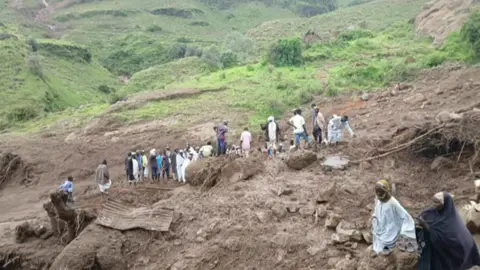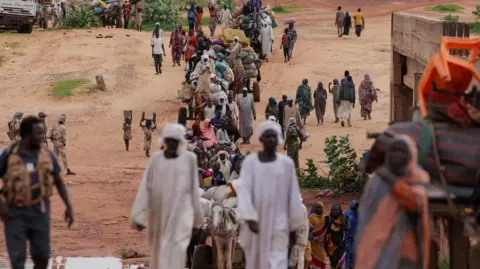Reem al-Kari and her cousin Lama search through photos of children at a Syrian children’s shelter, hoping to find Karim, Reem’s son who went missing in 2013 during the civil war. Karim is one of over 3,700 children still missing since the regime's collapse, now aged 15.
As Reem looks through the photos, she hears the difficult task of recognizing her lost son amidst a sea of other missing children. The charity SOS Children's Villages International, heavily involved in managing orphanages during this troubling period, has been accused of complicity in the disappearances by failing to reunite children with their relatives and even altering their identities.
Notably, whistleblowers from SOS have disclosed that higher officials were often selected directly by the Assad regime. This has led to deep scrutiny over the charity's operations in Syria and its role in managing children from politically detained families.
The investigation, a joint effort by the BBC and several news organizations, uncovered database listings of 323 children that had been hidden from their families. SOS was found to have admitted under-documented children, with many eventually handed back to Syrian intelligence without tracking their fate.
SOS acknowledges that a total of 140 children without proper documentation were taken into its orphanages between 2013 and 2018, and many ended up unaccounted for after being returned to Syrian authorities. Although the charity claims to have ceased such admissions in 2018, evidence suggests otherwise.
Reem’s search leads her to several institutions, but she finds little support. The Syrian regime’s past and ongoing repressive actions make it challenging for families to gain any information about their loved ones. Each visit to a shelter is filled with hope, but it often ends in disappointment and heartbreak.
Meanwhile, Omama Ghbeis, who spent nearly three years imprisoned, also recounted a painful experience tied to SOS, having lost her daughters, Layla and Layan, to the charity. After her release, she found that the organization had changed her children's identities and managed the situation in a way that kept them from knowing about their real family.
As Reem continues her search for Karim amidst the chaos, the community of missing children’s families remains hopeful yet frustrated at the lack of systematic support or accountability. The investigation not only shines a light on the disappearances but calls for urgent actions to reunite families and address the problematic practices of organizations like SOS.

















